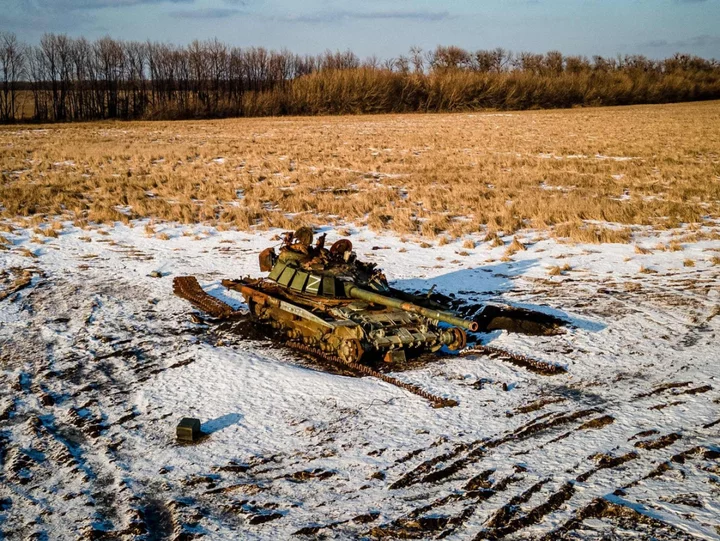
Experts reveal what the winter will bring for the Ukraine war – and why Putin will be banking on Trump
The Ukraine war may remain a “stalemate” throughout 2024, military experts have told The Independent, as hopes fade for a major breakthrough in this year’s counteroffensive against Russia. Delays in Western military aid handed Moscow time to build heavily fortified defences, which have largely held up against months of intense assaults – and constraints in ammunition and weaponry now mean both armies may struggle to sustain the current pace of the war, some analysts believe. With the prospect of a Middle East conflict likely to further stretch Washington – Ukraine’s largest backer – ahead of a US presidential election in November 2024, Vladimir Putin’s strategy may now be to preserve the current state of the frontline and “wait it out”, Western experts say. With just weeks likely left before seasonal weather changes dampen offensive efforts in Ukraine, Dr Patrick Bury of the University of Bath said: “There hasn’t been a breakthrough, there’s been tactical gains, low-level operational gains – but not strategic.” “What this summer has shown is that [Ukraine] can fight at company level [of around 100 soldiers] but when you go the next level up to the battalion, they just don’t really have the coordinated experience to fight with all the moving parts”, said Dr Bury, a former Nato analyst and British Army captain. While the US is due to start providing F-16 fighter jets next year, the sophistication of the Russian air force means Ukraine will still struggle to achieve air superiority, “and you need air superiority really to be able to free up the chance of large-scale manoeuvre”, he added. Therefore “unless there’s significant widespread packages of training, new weapons and equipment”, Dr Bury said, “it’s looking like 2024 is a bit of a stalemate” – with any significant shifts instead likely to take place off the battlefield. Agreeing that “we’re [already] seeing a stalemate now”, Dr Frank Ledwidge – a former military intelligence officer, now at the University of Portsmouth – questioned “whether any tactics would have worked against defenders who [Ukraine] didn’t outnumber three to one”. “In the most basic military algorithms, you need an attack ratio of three [troops] to one, and the Ukrainians don’t have anything like that,” he said. “So barring any significant change in that force ratio there’s no reason really now to assume that future operations will be any different.” Warning that there are “no game changers”, including F-16s, Dr Ledwidge likened the situation to the Western Front in 1917, adding: “Breakthroughs were made eventually in the First World War, but only when the Americans came in with two million soldiers.” He added: “Unless somebody has the moral courage to say ‘Ukraine is highly unlikely to retake all its land’, then this will go on.” James Nixey, director of the Chatham House think-tank’s Russia and Eurasia programme, said: “It does seem as though we’re heading towards a battle for Crimea.” While noting that Russia is “going all-in” by putting its economy and society “on a near at total war footing”, which may help address ammunition shortages, Mr Nixey said he agreed that significant changes to the situation in Ukraine will now likely “happen off field”. “Putin is banking almost everything on a Trump return,” he said, adding that the conflict emerging in Gaza and Israel – and threatening to become a wider Middle East conflict drawing in Hezbollah and Iran – means that “attention, resources and funding will be diverted now” from Ukraine. “While it’s true that the US army prepares for to simultaneous separate wars, the reality is that the pie is likely to be smaller – even if Ukraine funding is tagged onto an Israel assistance bid,” said Mr Nixey. US president Joe Biden, who recently suffered a setback in securing Congress’s approval for Ukraine aid, rejected that prospect this week, telling CBS News: “We’re the United States of America, for God’s sake. The most powerful nation in the history of the world. “We can take care of both of these and still maintain our overall international defence. We have the capacity to do this and we have an obligation … If we don’t, who does?” But agreeing that a second conflict has “certainly got the potential for stretching the US”, Dr Bury and Dr Ledwidge both believe a military stalemate in Ukraine is therefore “very satisfactory” to the Russian president. “Putin’s strategy is just to wait it out,” said Dr Bury. “Putin’s played a masterstroke here – he’s basically used a nuclear threat to slow down and salami-slice the aid to Ukraine. That’s the effect it’s had.” “Those threats were enough to make the Biden administration and the Germans were very wary” of supplying F-16s, tanks and long-range weaponry, he noted, adding: “We got there in the end, but it took time. “And that, it turned out, gave Russia time to build very good defensive lines and make their problem easier and the Ukrainians’ much harder.” Read More Russia to return four Ukrainian children to their families as part of Qatari-brokered deal Putin arrives in China on rare trip abroad to meet ‘dear friend’ Xi Jinping As the conflict in Israel rages on, the world must not forget about Ukraine ‘My body was burning’: Russian journalist’s horror journey in grips of suspected poisoning
2023-10-17 22:29
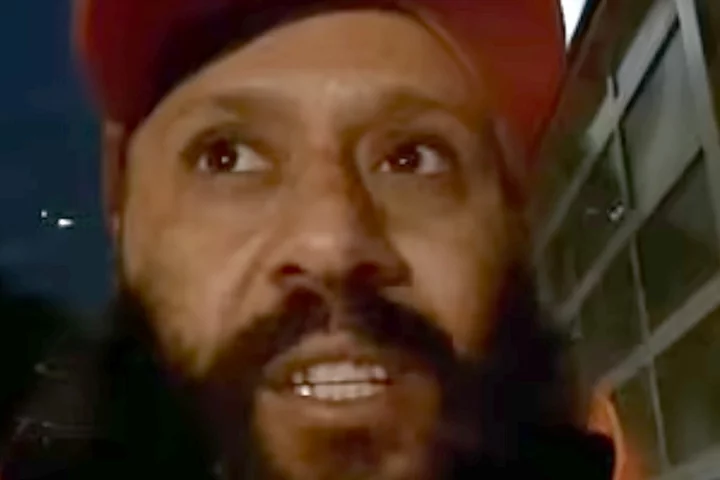
What we know about Isis Brussels terror suspect Abdesalem Lassoued
A terror suspectin Brussels has died after being shot by police in a cafe on Tuesday. The 45-year-old Tunisian man, identified as Abdesalem Lassoued, was shot in the chest and died in hospital from his wounds, local media said. Two Swedish nationals were killed in Brussels after a gunman opened fire in the city centre on Monday night ahead of a qualifier game for the UEFA Euros between Sweden and Belgium at the Heysel Stadium, some three miles away. The second half of the match was later called off. Footage shared online showed a man dressed in an orange jacket unloading several shots, using a large weapon. The bearded man was reportedly seen leaving the crime scene on a scooter. After the shooting Abdesalem Lassoued posted a video on Facebook about the killings, claiming he was a member of Islamic State (IS) and had killed “three Swedes so far”. Authorities searched for the man overnight, before finding him inside a café in the Brussels neighbourhood of Schaerbeek at 8am and ‘opened fire’. Here’s everything we know about the terror suspect: Who is the terror suspect? The gunman was named on Monday night by local media as 45-year-old Abdesalem Lassoued from Tunisia. He was reportedly a failed asylum seeker living illegally in the Schaerbeek area of Brussels, which is about a ten-minute drive from the scene of the shooting. Justice Minister Vincent Van Quickenborn said Lassoued was convicted in Tunisia ‘for common law offences’, but was not reported for a terrorist risk. Why did he carry out the attack? After the shooting, Lassoued posted a video to Facebook, using the name Slayem Slouma, speaking in Arabic: “Islamic greeting Allahu Akbar. My name is Abdesalem Al Guilani and I am a fighter for Allah. I am from the Islamic State. We love who loves us and we hate who hates us. We live for our religion and we die for our religion.” He added that he had “killed three Swedes so far” and also claimed he had carried out the attack in “revenge in the name of Muslims”. A Belgian federal prosecutor said there was no evidence that the attacker had any link to the renewed conflict between Israel and Palestinian militants. What happened after the shooting? Police in Belgium searched overnight to find the suspect who opened fire in the Brussels city centre. Footage shared online showed a man dressed in an orange jacket unloading several shots using a large weapon, before leaving the crime scene on a scooter. Police raided a building in the Brussels neighborhood of Schaerbeek overnight where the man was thought to be staying but did not find him. Authorities eventually found a suspect inside a café in the Brussels neighbourhood of Schaerbeek at 8am. He was shot in the chest before dying in hospital from his wounds, local media reported. Interior Minister Annelies Verlinden posted on X: “The perpetrator of the terrorist attack in Brussels has been identified and died.” The European Commission, which is based in Brussels, has urged staff to work from home and some schools were closed in the wake of the attack. Read More Brussels shooting live: Terror suspect killed by police after Swedish nationals murdered in Belgium Belgium shooting: Video shows moment gunman opened fire, killing two people in Brussels Sweden players take overnight flight home, start returning to clubs after shooting in Belgium How Quran burnings in Sweden have increased threats from Islamic militants Amazon, Tripadvisor and other companies team up to battle fake reviews while FTC seeks to ban them Video shows moments before gunman opened fire in Brussels, killing two people
2023-10-17 19:24
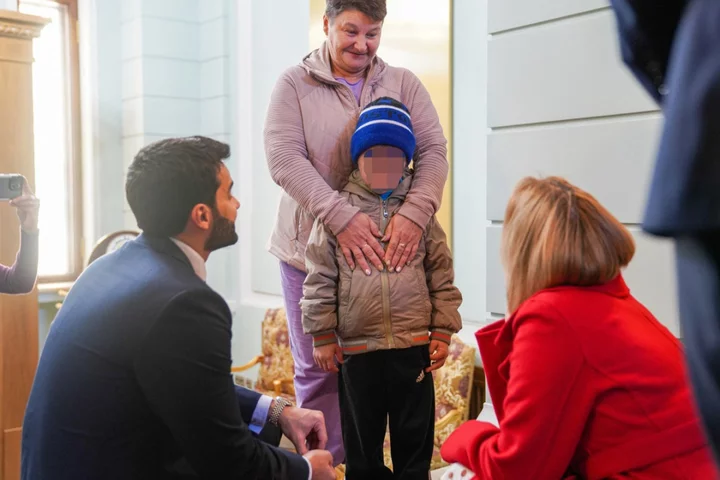
Russia to return four Ukrainian children to their families as part of Qatari-brokered deal
Four children from Ukraine are to be to be returned to their families from Russia in a deal brokered by Qatar. The youngest is two years old, while the oldest is 17. A seven-year-old boy returned to Ukraine on Monday via Estonia after he was reunited with his grandmother in Qatar's Moscow embassy last week, the official said. The two-year-old boy was handed over to Qatari diplomats in Moscow on Monday, and a nine-year-old boy and a 17-year-old girl are due to be handed over this week, the official said. The Ukrainian Presidential Office said the children would all be home soon. "We are bringing home four Ukrainian children illegally deported to the Russian Federation," Andriy Yermak, head of the presidential office, said on X, formerly known as Twitter. He gave no further details. Kyiv says about 20,000 children have been taken from Ukraine to Russia or Russian-held territory without the consent of family or guardians. It calls this a war crime that meets the UN treaty definition of genocide. Moscow, which launched a full-scale invasion of Ukraine in February last year, denies committing the accusation and says it has protected vulnerable children from the war zone. The return of the first four children tests a system the Gulf Arab state established after months of secret talks with Moscow and Kyiv, the Qatari official said on condition of anonymity because of the sensitivity of the process. Qatar's minister of state for international cooperation, Lolwah Al Khater, confirmed the mediation in a statement and described this week's repatriations as "only a first step". Russia's Commissioner for Children's Rights, Maria Lvova-Belova, shared a short initial list of Ukrainian children to be returned with a team of Qatari diplomats who verified each child's identity, the official said. It was not clear how many additional children Russia would authorise to return to Ukraine via the Qatari mechanism, the Qatari official said. About 400 children have been returned to Ukraine since Moscow's invasion, but the United Nations human rights agency raised concerns last week that there was no system to facilitate such returns. Qatari diplomats will accompany the children over the border with Estonia, Latvia or Belarus or to Qatar by chartered jet before returning them to Ukraine, the Qatari official said. "Both Ukrainian and Russian officials have been cooperative," the Qatari official said, adding that Ukraine approached Doha to mediate with Russia over the children. The seven-year-old boy reunited with his grandmother on Friday had been in Russia at a children's home "as a result of being separated from his mother who was in Russia when the war broke out", a Qatari official told Reuters. The International Criminal Court issued arrest warrants in March for Russian President Vladimir Putin and Ms Lvova-Belova, accusing them of the war crime of illegally deporting children from Ukraine. Both deny the allegations against them. Reuters reporting contributed to this report Read More The Body in the Woods | An Independent TV Original Documentary The harrowing discovery at centre of The Independent’s new documentary Russia is sending more forces to an eastern Ukraine city after its assault slows, analysts say Poland's ruling conservatives lose majority in parliament to centrist coalition, final count shows Trump scheduled to be questioned in lawsuits from ex-FBI employees who sent negative texts about him
2023-10-17 17:51
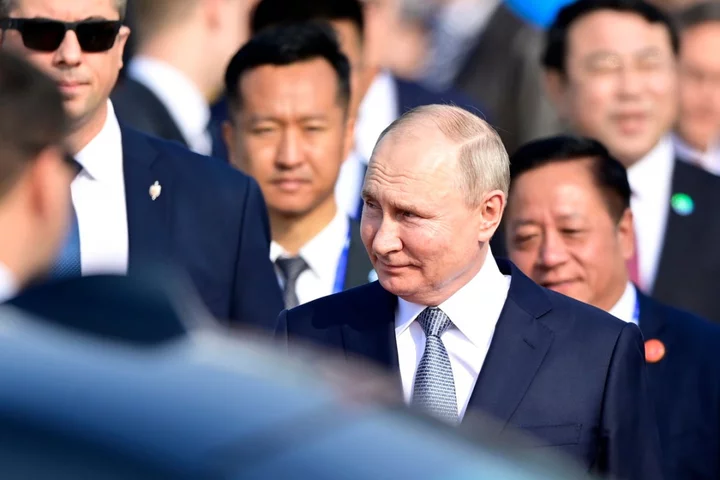
Putin arrives in China on rare trip abroad to meet ‘dear friend’ Xi Jinping
Vladimir Putin arrived in Beijing on Tuesday for a rare trip abroad to join ally China in marking the 10th anniversary of an international cooperation forum. The two-day visit is only his second known trip abroad since the Hague-based International Criminal Court (ICC) issued an arrest warrant for the Russian leader in March over Ukraine war crime allegations. The Russian president and his Chinese counterpart Xi Jinping are holding talks to bolster their shared trade and security amid Western sanctions against Moscow over Mr Putin’s invasion of Ukraine. Several other world leaders also arrived in Beijing for the Belt and Road Initiative (BRI) forum championed by Mr Xi, including Vietnam’s president Vo Van Thuong, but Mr Putin is being heralded as the talks’ chief guest. The Russian presidential entourage was greeted by Chinese commerce minister Wang Wentao after Mr Putin’s plane touched down at the Beijing Capital International Airport on Tuesday. Beijing has supported Russia in rejecting resolutions on Ukraine in the United Nations Security Council, part of Western efforts to isolate Russia over the war. China has rejected Western criticism of its close partnership with Russia in spite of the war in Ukraine, which entered its 600th day on Monday. Mr Putin is expected to hold bilateral meetings with his counterparts from Vietnam, Thailand, Mongolia and Laos on Tuesday and attend the forum’s official opening reception hosted by Mr Xi, Tass news agency reported. On Wednesday, he will address the forum after Mr Xi as the chief guest and will meet the Chinese president for talks after. Before embarking on the trip, Mr Putin said in an interview with CCTV that he had met with Xi more than 40 times so far and the two have “many fond memories”. He praised China’s ambitious BRI project and said contrary to the West’s perception, Beijing was seeking cooperation and not to “put someone under its thumb”. China launched its signature BRI project in 2013 and funded $900bn in infrastructure and other projects to connect Asia with Africa and Europe through overland and maritime routes. The project has since faced many challenges, including concerns about debt sustainability and the impact of China’s economic slowdown. Mr Putin said his meeting with Mr Xi would encompass talks on Belt and Road-related projects, which he said Moscow wanted to link with efforts by an economic alliance of ex-Soviet Union nations mostly located in Central Asia to “achieve common development goal”. This is his second visit outside Russia after his visit to Kyrgyzstan, a former Soviet republic, earlier this month. The ICC accused Mr Putin of committing a war crime by “illegally deporting children from Ukraine”. The ICC obliges the court’s 123 member states to arrest Mr Putin and transfer him to The Hague for trial if he sets foot on their territory. The Kremlin leader last visited China for the Beijing Winter Olympics in February 2022 when Mr Xi declared a “no-limits" partnership with Russia. Mr Xi met Mr Putin in March during a three-day trip to Moscow amid the Pentagon’s fears of Beijing’s potential military cooperation between the two countries for supplying weapons to be used in Ukraine. They greeted one another as “dear friend” when they met in the Kremlin, and held informal talks for over four hours. Read More Russia mounts ‘intensive’ offensive to break ‘powerful’ Ukrainian defences in Kupiansk-Lyman Ukraine-Russia war – live: Putin suffers serious losses in largest offensive in months Viral hate and misinformation amid Israel-Hamas crisis renew fears of real-world violence
2023-10-17 17:48
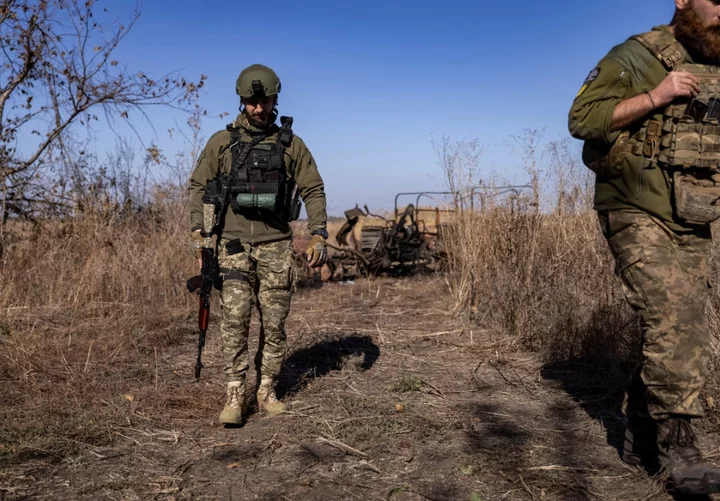
Ukraine-Russia war – live: Putin’s latest assault weakens as Moscow denies accepting North Korea weapons
Russia has lost 127 tanks, 239 armoured personnel vehicles (APVs) and 161 artillery systems in a week, Kyiv has said as Vladimir Putin launches a sustained assault in the east of Ukraine. Moscow’s forces lost eight tanks, 25 APVs and 33 artillery systems in the past day, Ukraine’s General Staff said on Sunday. The Independent cannot independently confirm Kyiv’s numbers which come after Putin claimed Ukraine‘s counteroffensive “completely failed”. “As for the counteroffensive, which is allegedly stalling, it has failed completely,” Putin said in video remarks posted to social media by a Kremlin journalist Pavel Zarubin. Russia currently controls about 17.5% of Ukrainian territory and a four-month-old Ukrainian counteroffensive this year has resulted in almost no net territorial gains. Read More Russian attacks kill six in Ukraine as Kyiv ramps up drone counter strikes Russian governor reported to police for speaking out over Putin’s ‘unnecessary’ war against Ukraine Ukrainian forces release video of downed Russian Mi-8 helicopter: ‘It burns beautifully’
2023-10-17 16:26
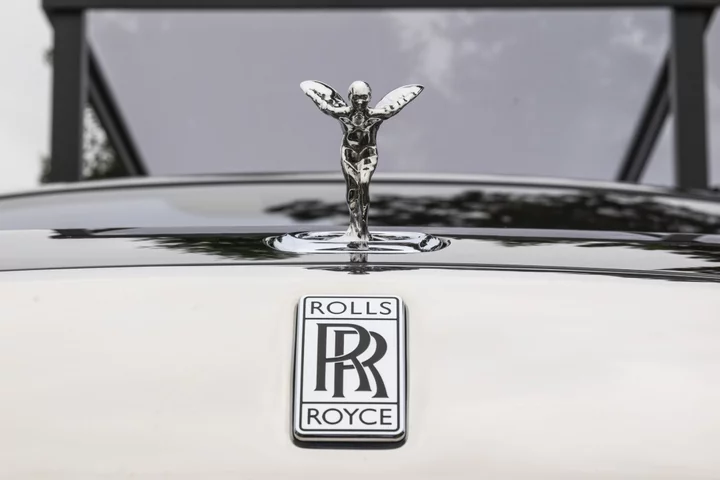
Rolls-Royce to Cut 2,500 Jobs as CEO Extends Efficiency Drive
Rolls-Royce Holdings Plc said it’s cutting as many as 2,500 positions and will streamline the business, enacting the
2023-10-17 14:58

Ericsson Says Weakness Persists in Quarter After Sales Miss
Ericsson AB said market weakness that has depressed sales will persist into the fourth quarter as the company
2023-10-17 14:20
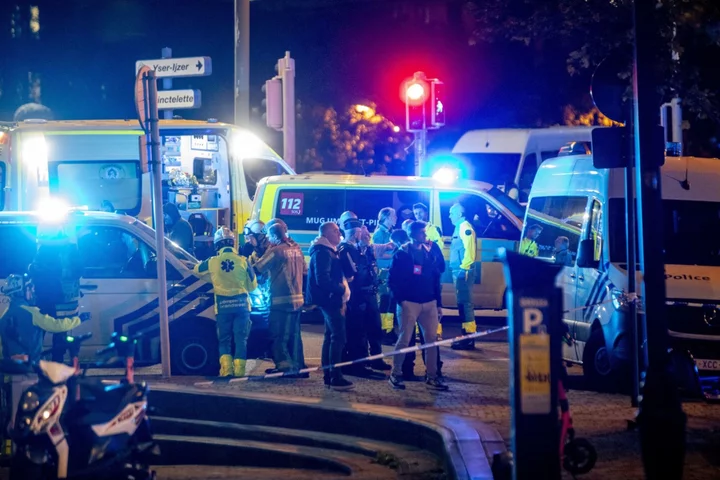
Belgian Police Hunt for Suspected Terrorist Who Killed Two
Belgian police are searching Tuesday for a Tunisian man who killed two Swedish football fans as they investigate
2023-10-17 14:17
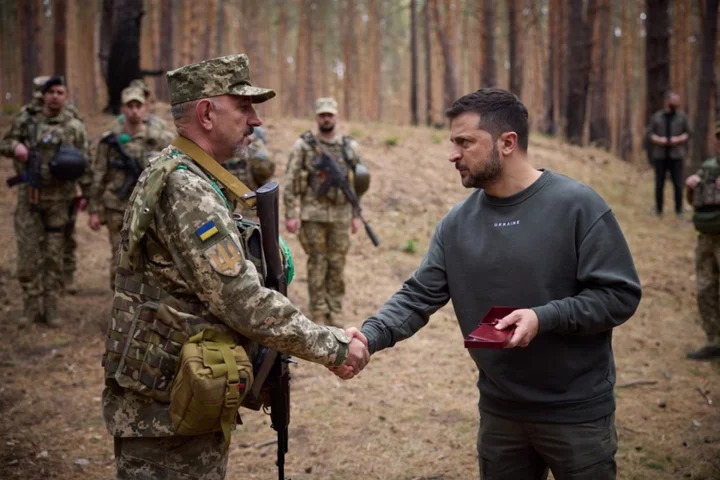
Russia mounts ‘intensive’ offensive to break ‘powerful’ Ukrainian defences in Kupiansk-Lyman
Russia has intensified its offensive in northeastern Ukraine to break through its heavily fortified defence and recapture the Kupiansk-Lyman area. The Russian Army is preparing for “serious offensive actions” and sending more staff in Kupiansk-Lyman, commander of the Ukrainian ground forces Oleksandr Syrskyi said. The fighting had "significantly escalated", he said, adding, "The main goal is to break through our troops’ defences and recapture our territory". But Ukraine’s eastern forces said president Volodymyr Zelensky’s forces were putting up a tough fight from well-entrenched troops, forcing Russian soldiers to retreat. “Our fortifications there are quite reliable. We have a powerful, dug-in position,” Ilia Yevlash, spokesperson for Ukraine’s forces in the east, told Ukrainian television. “So the enemy got it right in the teeth and retreated in order to regroup.” Russia captured the northeastern towns near Ukraine’s second-largest city of Kharkiv when the invasion began but Ukrainian forces recaptured the areas last year, evicting invading forces from some parts of the country’s Donbas industrial heartland. Its recapturing marked a significant step in the Ukrainian offensive to defend its territories. The Russian defence ministry acknowledged that it launched an “intense military activity” in the area and repelled 10 Ukrainian attacks in the Kupiansk area and two more in adjacent Lyman. In June, Ukraine initiated a counteroffensive with the primary objective of reclaiming territory in the eastern region, notably in the vicinity of Bakhmut, which had fallen under Russian control in May. Their strategy also involved advancing southward toward the Sea of Azov. The Ukrainian military primarily achieved gradual progress, disregarding criticism from certain Western observers who contended that the offensive was proceeding too slowly. Over the past week, the focus on the eastern front has shifted from Bakhmut to Avdiivka, a town located further southwest renowned for its substantial coking plant. The leading local authority in Avdiivka said there was a temporary calm in the city but they anticipated a forthcoming assault. “Shelling has diminished, there was less today,” Vitaliy Barabash, head of Avdiivka’s military administration, told national television, while noting that two people were killed in a nearby village. “We expect there will be new waves of heavy attacks in the days to come.” Read More Ukraine-Russia war – live: Putin suffers serious losses in largest offensive in months Sushi standoff spreads as Russia joins China in banning Japanese seafood Russian governor reported to police for speaking out over Putin’s ‘unnecessary’ war against Ukraine The Body in the Woods | An Independent TV Original Documentary The harrowing discovery at centre of The Independent’s new documentary
2023-10-17 13:54
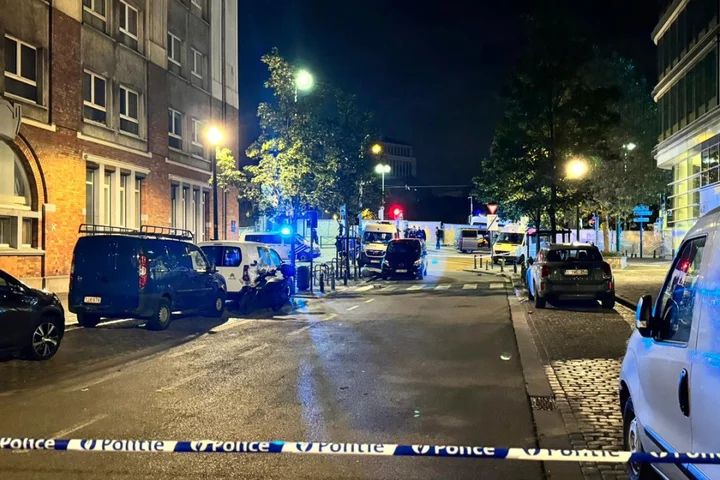
Brussels shooting live: Two Swedes shot dead as Belgium police hunt terror attack gunman
Two Swedes were killed in Brussels after a gunman opened fire in the city centre, police have said. Footage shared online showed a man dressed in an orange jacket unloading several shots, using a large weapon. The bearded man was reportedly seen leaving the crime scene on a scooter. The violent incident came ahead of a qualifier game for the UEFA Euros between Sweden and Belgium at the Heysel Stadium, some three miles away. The second half of the match was later called off after players reportedly refused to return to the field. A message from the Swedish FA, sent to supporters advised fans to remain inside the stadium. Belgian prime minister Alexander De Croo told reporters that “the perpetrator is said to be a man of Tunisian origin who was staying illegally in our country”. “Two lives were cut short, mown down by the most extreme cruelty. Our thoughts go out to the victims, their loved ones, their relatives. We offer our condolences,” he added. Read More Gunman at large after fatally shooting two people in Brussels Belgium stadium on lockdown with thousands of fans held inside after Brussels shooting Soccer match between Belgium and Sweden suspended after deadly shooting in Brussels
2023-10-17 13:51
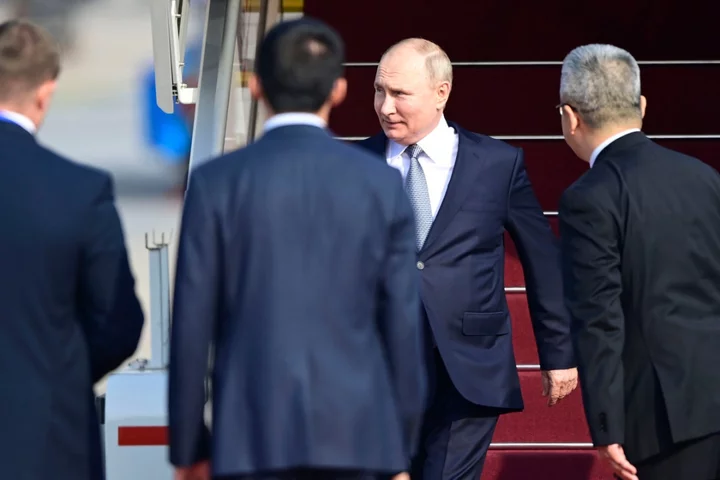
Putin begins visit in China underscoring ties amid Ukraine war and Israeli-Palestinian conflict
Russian President Vladimir Putin arrived in Beijing on Tuesday for a visit that underscores China’s support for Moscow during its war in Ukraine as well as Russian backing for China's bid to expand its economic and diplomatic influence abroad. The two countries have forged an informal alliance against the United States and other democratic nations that is now complicated by the Israel-Hamas war. China has sought to balance its ties with Israel against its relations with Iran and Syria, two countries that are strongly backed by Russia and with which China has forged ties for economic reasons as well as to challenge Washington's influence in the Middle East. Putin's plane was met by an honor guard as the Russian leader began his visit that is also a show of support for Chinese leader Xi Jinping’s signature “Belt and Road” initiative to build infrastructure and expand China’s overseas influence. In an interview to Chinese state media, Putin praised the massive but loosely linked BRI projects. “Yes, we see that some people consider it an attempt by the People’s Republic of China to put someone under its thumb, but we see otherwise, we just see desire for cooperation,” he told state broadcaster CCTV, according to a transcript released by the Kremlin on Monday. Putin will be among the highest profile guests at a gathering marking the 10th anniversary of Xi’s announcement of the BRI project, which has laden countries such as Zambia and Sri Lanka with heavy debt from contracts with Chinese companies to build roads, airports and other public works they could not otherwise afford. U.N. Secretary-General António Guterres has praised the Chinese policy as bringing development to neglected areas. Asked by reporters Friday about his visit, Putin said it would encompass talks on Belt and Road-related projects, which he said Moscow wants to link with efforts by an economic alliance of former Soviet Union nations mostly located in Central Asia to “achieve common development goals.” He also downplayed the impact of China’s economic influence in a region that Russia has long considered its backyard and where it has worked to maintain political and military clout. “We don’t have any contradictions here, on the contrary, there is a certain synergy,” Putin said. Putin said he and Xi would also discuss growing economic ties between Moscow and Beijing in energy, high-tech and financial industries. China has also grown in importance as an export destination for Russia. Alexander Gabuev, director of the Carnegie Russia Eurasia Center, said that from China’s view, “Russia is a safe neighbor that is friendly, that is a source of cheap raw materials, that’s a support for Chinese initiatives on the global stage and that’s also a source of military technologies, some of those that China doesn’t have.” “For Russia, China is its lifeline, economic lifeline in its brutal repression against Ukraine,” Gabuev told The Associated Press. “It’s the major market for Russian commodities, it’s a country that provides its currency and payment system to settle Russia’s trade with the outside world — with China itself, but also with many other countries, and is also the major source of sophisticated technological imports, including dual-use goods that go into the Russian military machine.” Gabuev said that while Moscow and Beijing will be unlikely to forge a full-fledged military alliance, their defense cooperation will grow. “Both countries are self-sufficient in terms of security and they benefit from partnering, but neither really requires a security guarantee from the other. And they preach strategic autonomy,” he said. “There will be no military alliance, but there will be closer military cooperation, more interoperability, more cooperation on projecting force together, including in places like the Arctic and more joint effort to develop a missile defense that makes the U.S. nuclear planning and planning of the U.S. and its allies in Asia and in Europe more complicated,” he added. The Chinese and Soviets were Cold War rivals for influence among left-leaning states, but China and Russia have since partnered in the economic, military and diplomatic spheres. Just weeks before Russia’s invasion of Ukraine last February, Putin met with Xi in Beijing and the sides signed an agreement pledging a “no-limits” relationship. Beijing’s attempts to present itself as a neutral peace broker in Russia’s war on Ukraine have been widely dismissed by the international community. Xi visited Moscow in March as part of a flurry of exchanges between the countries. China has condemned international sanctions imposed on Russia, but hasn’t directly addressed an arrest warrant issued for Putin by the International Criminal Court on charges of alleged involvement in the abductions of thousands of children from Ukraine. ___ Associated Press writer Jim Heintz in Tallinn, Estonia, contributed to this report.
2023-10-17 13:16
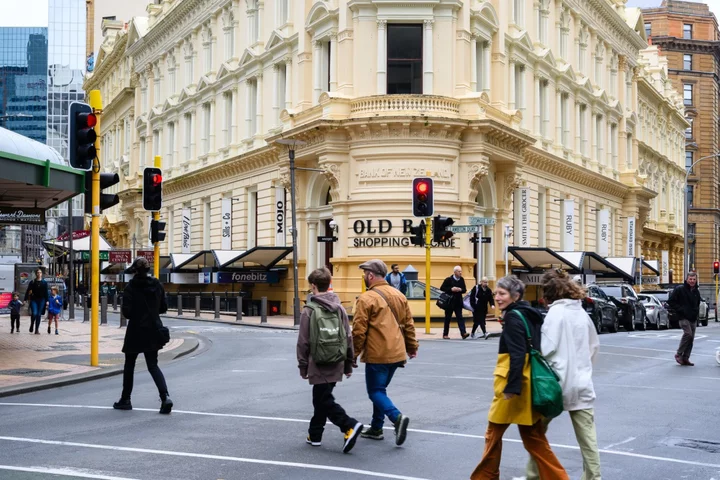
New Zealand Inflation Slowdown Sees Traders Pare Rate-Hike Bets
New Zealand inflation slowed more than economists expected in the third quarter, adding to signs that the central
2023-10-17 08:17
